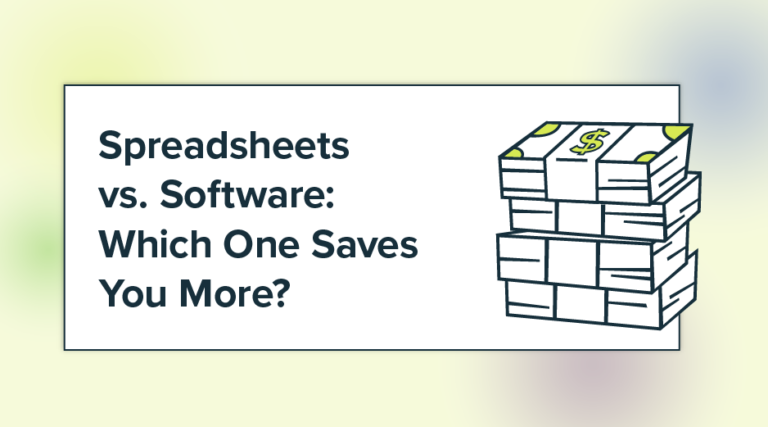 Three years ago, Sales and Marketing (me) had a bit of a falling out with Accounts Payable (my wife). To be honest, it was a bit more than a falling out. It was a communication problem that was adversely affecting our marriage.
Three years ago, Sales and Marketing (me) had a bit of a falling out with Accounts Payable (my wife). To be honest, it was a bit more than a falling out. It was a communication problem that was adversely affecting our marriage.
No matter how I tried to “bring home the bacon,” we always were spending every dime and more, and our credit card debt was growing ominously. I was resentful and she was defensive. And if momma ain’t happy, ain’t nobody happy, as the saying goes. We weren’t miserable, but we had recently made a commitment to really grow in our marriage relationship, and the money issues were getting in the way.
Fortunately, right around this time, EnergyCAP offered its employees a subsidized course in the Dave Ramsey Financial Wellness program (now called SmartDollar). I was highly motivated to learn, and Dave’s baby steps to financial freedom seemed like something I/we could handle. The concepts were new and strange, but yet exciting. So many questions! How do we budget? What was a sinking fund? Do we have to use envelopes of real money? Since we were both wage earners, is the money “his” and “hers?”
One of my hardest tasks was to convince my wife (Susan) that the budgeting concept could work for us. In principle, the concept is remarkably simple: Spend every dime of your monthly paycheck(s) on paper (or on the computer—we use an Excel spreadsheet) before you make a single purchase. But that process requires knowledge and planning. My wife had the knowledge—as the principal money manager, she’d been paying the bills for 30+ years. But it was a bit threatening for her. In a way, I was intruding in her domain. And I had my own challenges—coming to grips with the fact that I’d essentially been AWOL all these years, dumping financial responsibilities on her shoulders that I should have been willing to share.
Once she realized that I was serious about wanting to help, and that we could adapt Ramsey’s approach to fit our situation, she jumped on board and we’ve never turned back. Our monthly planning meetings, which had started out in uncertainty and distrust, became opportunities for affirmation and joy. What Susan feared might be a straightjacket turned out to be freeing for her, since she was spending our money in ways that we had already determined together were right and good, and the money had already been ‘set aside.’ By building into our monthly budgets those priorities that were agreeable and even delightful to both of us, we learned valuable lessons about each other, and about how to communicate better and compromise when necessary to balance the budget.
Looking back on our progress, I can report that our credit card debt is much diminished, and we see the very real possibility of being debt-free with the exception of our home mortgage payments before the end of 2016. [2017 Update: We settled the last of our credit card debt in January, and only the mortgage and a short-term auto loan assumed in December remain!] In the meantime, our budgeting process has enabled us to weather financial challenges including unexpected car repair, growing college tuition payments, and a recent local move. We have also been able to increase our charitable giving quite significantly, and Christmas is no longer a time of stress due to spending money that we don’t have.
If you’re feeling financial stress on a personal level during this ‘season of giving,’ I urge you to investigate the Dave Ramsey programs. And if your budgeting challenges are more organizational and utilities-related, here’s an early Christmas present: 10 Tips for Creating an Organizational Utility Budget. It’s yours for free!
{{cta(’76ae467a-58dc-4258-83ff-763d16285486′,’justifycenter’)}}
 Best-in-class portfolio-level energy and utility bill data management and reporting.
Best-in-class portfolio-level energy and utility bill data management and reporting.
 Real-time energy and sustainability analytics for high-performance, net-zero buildings.
Real-time energy and sustainability analytics for high-performance, net-zero buildings.
 A holistic view of financial-grade scope 1, 2, and 3 carbon emissions data across your entire business.
A holistic view of financial-grade scope 1, 2, and 3 carbon emissions data across your entire business.
 Energy and sustainability benchmarking compliance software designed for utilities.
Energy and sustainability benchmarking compliance software designed for utilities.
 Three years ago, Sales and Marketing (me) had a bit of a falling out with Accounts Payable (my wife). To be honest, it was a bit more than a falling out. It was a communication problem that was adversely affecting our marriage.
Three years ago, Sales and Marketing (me) had a bit of a falling out with Accounts Payable (my wife). To be honest, it was a bit more than a falling out. It was a communication problem that was adversely affecting our marriage.

